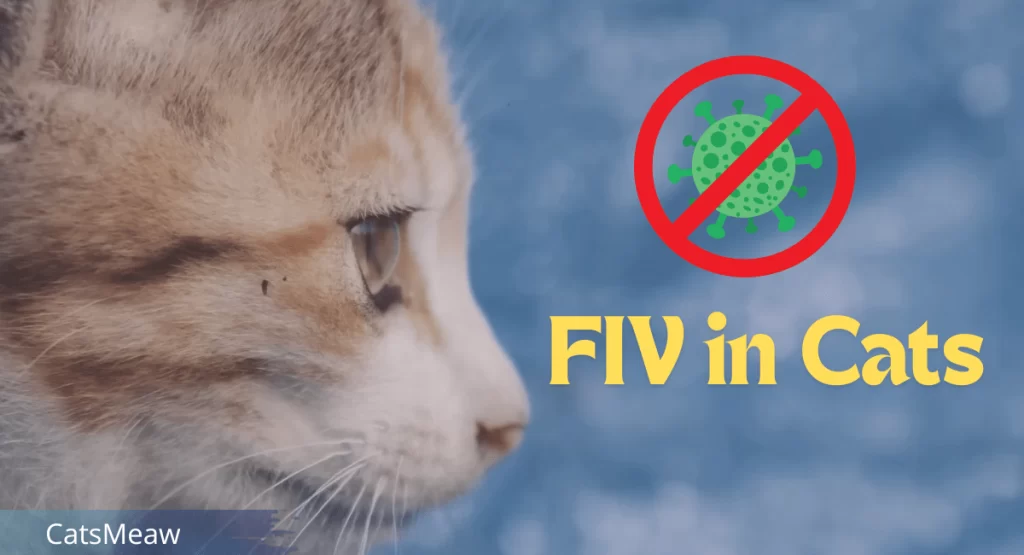FIV in Cats has a scary name, and it’s completely normal. Because, as with humans, this disease weakens the animal’s immune system and its outcome is always fatal. As cat lover, it’s vital to be well-versed in the symptoms, causes, and treatments of this condition to safeguard the health and vitality of your furry companions.

In this article, we unravel the mysteries surrounding FIV, equipping you with the knowledge needed to identify potential symptoms early, understand the underlying causes, and explore the most effective treatment options available.
Table of Contents
What is FIV in Cats?
AIDS in cats is caused by the feline immunodeficiency virus (or FIV), present in the animal’s blood or saliva. It is transmitted during fights (via a bite or deep scratch), which explains why many stray cats or fighting males carry the disease.
The virus will affect the cat’s immune system (via white blood cells) and the animal will therefore become much more vulnerable to any cats diseases. His body will have difficulty defending itself against attacks.
Good to know: despite the similarities between feline disease and human disease, FIV in Cats is in no way a zoonosis and therefore cannot infect humans.
What Are the Symptoms of Aids in Cats?
During the incubation period of the disease, the cat may have a slight fever, accompanied by a slight increase in the size of the lymph nodes. This phase of a few weeks often goes unnoticed.
Then the animal affected by FIV in Cats will be able to live for years without showing symptoms: this is what we call the asymptomatic phase, during which the cat is a carrier of the virus but not sick. However, it remains contagious to other cats.
Related: The 10 Most Common Cat Diseases
After a certain period of time (months or even years), the disease manifests itself actively. The virus will begin to destroy the white blood cells that allow the body to fight disease, and the cat’s condition will then deteriorate. We can thus observe:
- Loss of appetite, accompanied by weight loss
- A dull coat
- An increase in the size of lymph nodes
- Mouth infections, such as gingivitis or stomatitis
- Eye infections, such as conjunctivitis
- Diarrheavin cats
- Skin diseases, with the appearance of abscesses
- Neurological disorders if the disease affects the brain
How to Prevent and Care Aids in Cats?
As always, the best treatment for FIV in Cats remains prevention. Unfortunately, no vaccine currently exists against the disease. It is therefore advisable to have your cat sterilized to calm its character and thus limit the risk of fights. Avoiding nighttime outings by keeping your cat at home at night is also a good idea.
If, despite everything, your animal contracts FIV in Cats, anti-microbial treatment and anti-inflammatories can help it limit infections and improve its comfort of life. It will be necessary to protect it against anything which can accentuate its state of weakness: remember to treat it regularly against fleas, ticks and any other parasite which could weaken it. We will also pay particular attention to his diet, so that he benefits from the maximum possible energy. Check-up visits to the veterinarian with complete blood work are also recommended every 6 months.
understanding the root causes, and exploring the array of treatment options available, you can navigate the complexities of FIV with confidence and care. Remember, staying informed and staying proactive are key in providing the support and attention your cat needs to thrive despite this condition. Together, let’s continue to prioritize the health and happiness of our furry friends, ensuring they receive the love and care they deserve for years to come.
